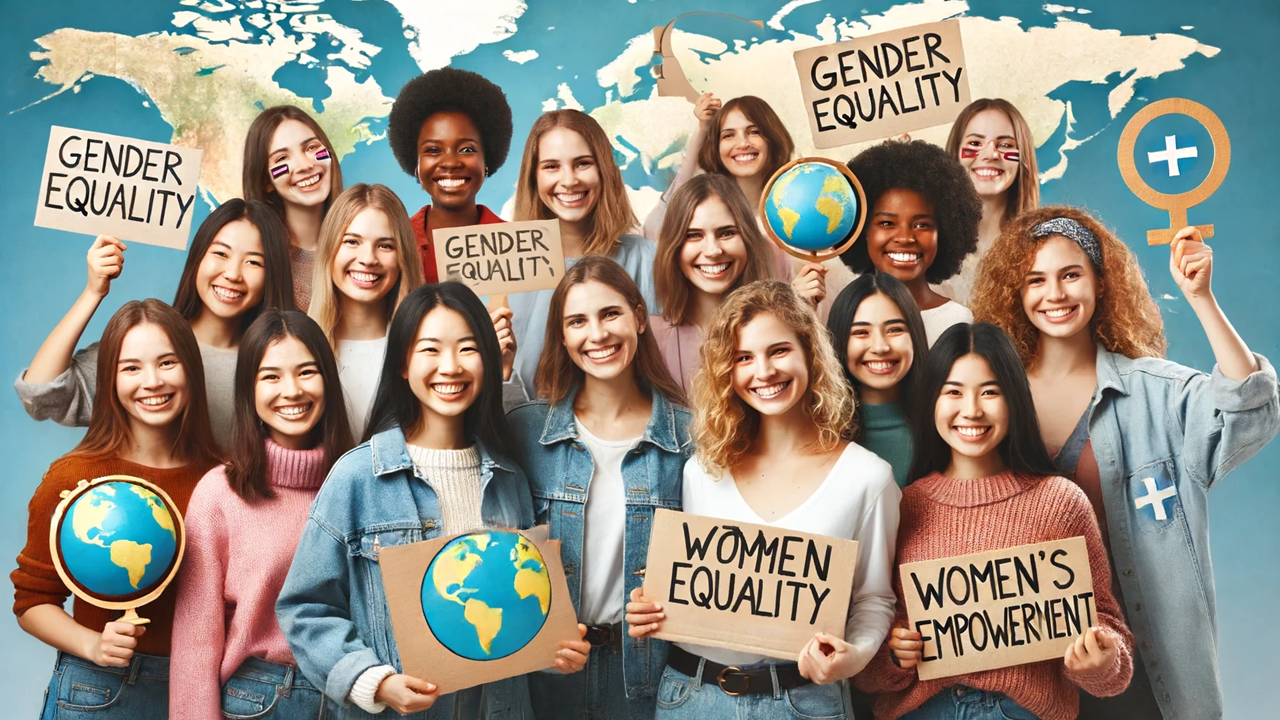Empowering Women to End Poverty: A Bold Vision for 2030
The World Bank Group's new strategy for 2024–2030, "Accelerate Gender Equality to End Poverty on a Livable Planet," aims to address gender inequality through innovative, comprehensive approaches focusing on reducing gender-based violence, expanding economic opportunities, and promoting women's leadership. By leveraging innovation, financing, and collective action, the strategy seeks to create a more equitable and prosperous world.

In a world where gender inequality remains a persistent challenge, the World Bank Group (WBG) has unveiled its ambitious strategy for 2024–2030. Titled "Accelerate Gender Equality to End Poverty on a Livable Planet," this strategy aims to address global inequalities and foster a sustainable future through targeted actions and collaborative efforts.
The Urgency of Gender Equality
Gender equality is not just a matter of fairness; it is a crucial component of development. Studies have shown that eliminating gender disparities can enhance economic productivity, reduce poverty, and strengthen social cohesion. However, progress in achieving gender equality has been slow, uneven, and sometimes reversed due to crises, conflicts, and deeply ingrained societal norms. The WBG's new strategy acknowledges these challenges and emphasizes the need for innovative and comprehensive approaches. By addressing gender-based violence (GBV), expanding economic opportunities for women, and promoting women's leadership, the strategy aims to create a more equitable and prosperous world.
Strategic Objectives
The WBG's strategy centers on three key goals: stopping gender-based violence while enhancing human capital, broadening and creating economic opportunities for women, and encouraging women's leadership roles. The strategy prioritizes the reduction of all forms of GBV, recognizing it as a fundamental barrier to gender equality and human development. Efforts will be directed towards promoting education, health, and socio-economic opportunities for women and girls to build a resilient human capital base.
Increasing women's participation in the workforce is essential for economic growth. The strategy aims to enhance access to economic resources and opportunities, including digital technology and financial services, ensuring that women can contribute fully to their economies. Promoting women's leadership and decision-making roles is vital for sustainable development. The strategy encourages women's participation in governance and community leadership, fostering environments where women can lead and innovate.
Implementation Through Innovation, Financing, and Collective Action
The WBG's strategy will be implemented through a conceptual framework that leverages innovation, financing, and collective action. These drivers of change are essential for influencing policies, programs, and practices that advance gender equality. Utilizing data, technology, and evidence-based approaches, the WBG aims to develop effective policies and programs. Digital tools and inclusive practices will be promoted to address gender inequalities.
Mobilizing resources from both the public and private sectors is critical for supporting gender equality initiatives. The WBG will implement gender-smart financing mechanisms such as blended finance and sustainability-linked finance to ensure sustained investment in gender equality. Engaging a wide range of stakeholders, including governments, civil society, and the private sector, is crucial for driving systemic change. Partnerships and collaborative efforts will be promoted to achieve gender equality outcomes.
The strategy recognizes the significant challenges in achieving gender equality, including entrenched social norms, limited legal rights, and socio-economic constraints. Key lessons from the past highlight the importance of sustained commitment, comprehensive approaches, and behavioral change interventions. One of the critical elements of the strategy is the involvement of men and boys in promoting gender equality. Engaging all members of society is necessary to create lasting change and overcome resistance to gender equality initiatives.
Monitoring and Accountability
To ensure progress, the WBG will translate the strategy into measurable targets and monitor outcomes through a results framework anchored in its Scorecard. This approach will hold all stakeholders accountable and track advancements toward gender equality goals. The WBG's 2024–2030 Gender Strategy is a bold and visionary plan to accelerate gender equality, end poverty, and ensure a livable planet. By leveraging innovation, financing, and collective action, the strategy aims to create a more inclusive and equitable world where everyone has the opportunity to thrive.
As the world faces increasing challenges from economic disparities, climate change, and social instability, the WBG's commitment to gender equality offers a pathway to a more sustainable and just future.
- FIRST PUBLISHED IN:
- Devdiscourse
ALSO READ
Sri Lanka Faces Judicial Debate Over Gender Equality Bill
DGCA Pushes for Gender Equality in Aviation: Aiming 25% Women Representation by 2025
Malaysia's Citizenship Reform: A Leap Forward in Gender Equality
Sweden's 50:50 Custody Split: A New Path to Gender Equality in Care Work
Empowering Women Worldwide: UNDP's Unstoppable Drive for Gender Equality










